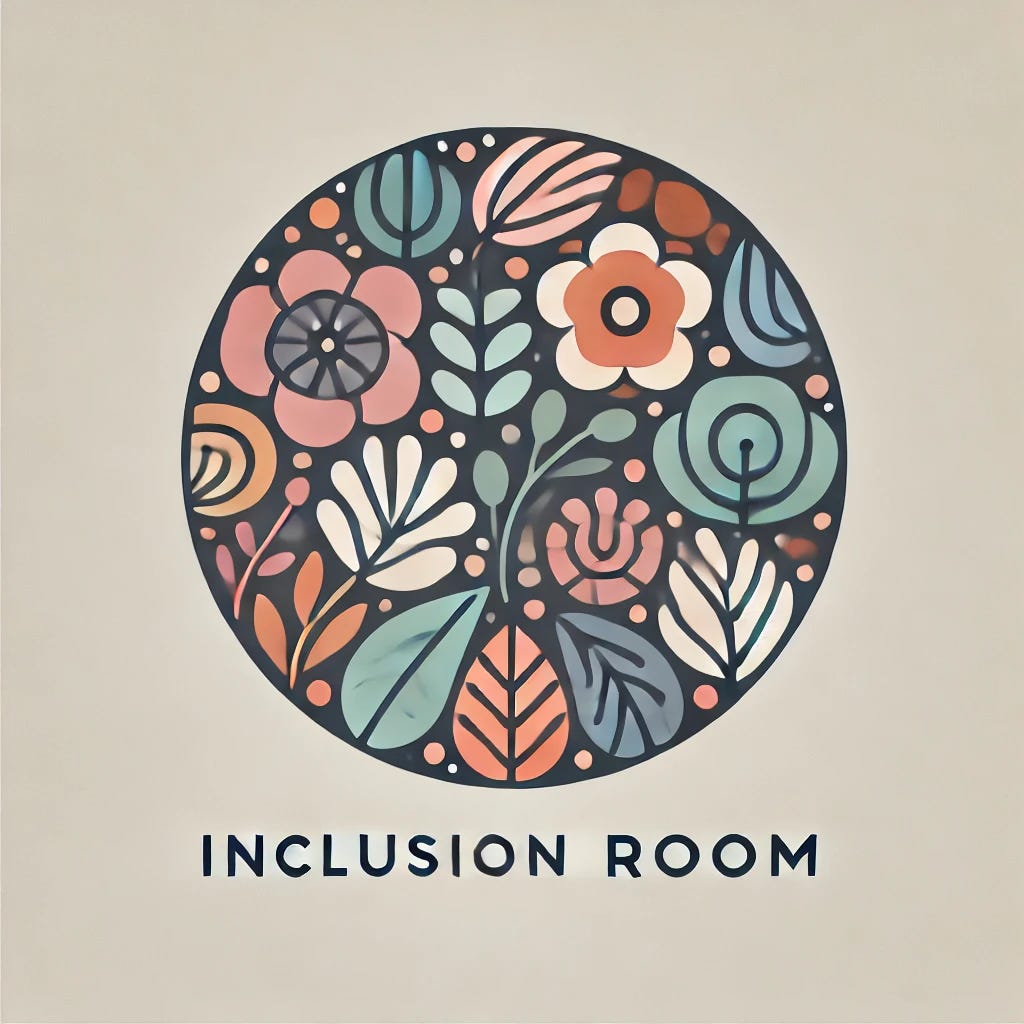3 Tips for an Inclusive Workplace
Performance starts with Inclusion
Welcome to The Inclusion Room — a space where literature, science, and storytelling meet to unlock the power of diversity, inspiring both personal and professional growth.
Dear Readers,
I hope this letter finds you well!
Do you see the newcomer sitting in the corner of the open space, or silent during the meeting?
They’re probably the same person who doesn’t show up at the coffee machine during the ritual break.
I’ve been that person — probably you have too.
But you know what? Having been that one, as a manager and a colleague, I made it a priority to turn onboarding into a real inclusion.
Here are 3 tips for successful onboarding and for creating space for newcomers to express themselves.
And if you are the newcomer, you can share these ideas with your manager and team.
An inclusive workplace is everyone’s business — it needs a systemic approach.
1️⃣ The Unwritten Code
Behind the official meetings on the agenda, every organisation runs on unwritten rites and routines that shape how daily life really happens during office hours.
From who is the real “go-to” person to where the coffee is stored — these things rarely appear on the official checklist.
Of course, you probably have an onboarding checklist with all the must-know info: how to print, where to go for medical issues, how to request leave, etc.
But often, this information is either outdated or only the tip of the iceberg.
What truly helps you integrate fast in a new workplace are the implicit rules — the ‘housekeeping’ norms silently written by those who stayed long enough to shape them.
And remember: people from minority groups (by nationality, background, language, etc.) often don’t pick up these insider norms as easily.
Why? On one hand, they already need to grasp the explicit rules, which is challenging enough. On the other hand, they often lack access to the informal networks where implicit rules are shared — because people tend to help those who look or sound like them.
How can you make this information accessible to everyone?
👉 Ask the most senior person in the room to describe all the “non-job-related activities” they do from Monday to Friday.
👉 Ask the latest newcomer what routines surprised them the most and which moments felt most awkward in their first month.
📝 Gather them in an Inclusive Playbook and update it whenever needed — that’s how you surface the unwritten rules.
2️⃣ The User Manual
In a multidisciplinary, multicultural team, misunderstandings often pop up.
Some are language-related, others come from cultural differences or communication styles.
Coming from Southern Europe, I’ve sometimes been perceived as too smiley or too warm in Northern countries — too positive.
If, like me, you prefer to approach people with a smile rather than a frown, you might wonder who would prefer the opposite.
Yet, a simple smile in the “wrong” room can reduce your chance to get promoted — or even to build trust with a colleague. Smiling across cultures can sometimes be a cultural awareness challenge.
I even had a colleague with whom working together was a struggle: I wanted to talk things through, while he insisted we communicate only through the “comments” section of a Word document.We realised this difference in the middle of a high-pressure project — let’s just say it wasn’t exactly a sweet moment.
One way to make sure your team runs smoothly is to clarify how each person works best.
You can do a simple “User Manual” roundtable. Each person answers:
What are my core values?
What’s my preferred way to communicate?
What do I need to work well with you?
What should you know or be mindful of?
Encourage a healthy dose of humour!
For example, here’s mine:
I prefer in-person exchanges to endless emails.
I like contact and closeness — I might step into your personal space. Just tell me and I’ll step back, no offence taken.
I’m naturally optimistic — it doesn’t mean I ignore risks, it means that once I’ve analysed a situation, I’ll put all my energy into making it work.
I often smile — it doesn’t mean I’m not facing difficulties, but I choose to face them with a smile rather than a frown.
Even if you’re unpleasant with me, I’ll probably still smile — that’s my choice, not a sign I didn’t understand.
I aim for performance through collaboration, not competition.
I can be impatient — please be clear and get straight to the point, or be ready to come back twice.
3️⃣ Manager? Never Speak First
A manager is a role model by definition — or at least should be. For better or worse, people follow their signals.
When a manager speaks first, they send a clear signal: “Get in line behind me.” They leave no space for divergent views.
Who will contradict the manager? Certainly not the newcomer. Maybe the experienced employee who think they’re irreplaceable.
So: never speak first.
Who should speak first then?
Leaving it open to “whoever wants to speak” is a false good idea — the first to jump in will probably be the most experienced, the loudest, or someone from the majority — often a man.
In fact, studies show that men take up 75% of speaking time in meetings. Hierarchical conformity, majority bias and stereotypes all limit equal expression in mixed groups.
The inclusive manager 2.0 must actively invite the newcomer, the quietest, or the minority voice to speak first.
That’s how you break the cycle — and build a workplace where everyone has a seat at the table.
If you’re interested in ensuring a smooth onboarding, you might like this previous post:
If creating an inclusive workplace matters to you, you may enjoy this section.
Would you like to share an inclusion tip?





One of the hardest things to convey is the organisation culture. Which imho is another way of describing what you’re talking so well about.
The fundamental problem tho with then recognising that this is indeed what the newbie needs to know… is how to convey it.
Too often that task is given to too junior an employee or to just “produce a manual” of it.
It’s not easy, in fact it’s really hard. “Depending on the culture” your tips are well articulated. Cheers.
Great guidance for everyone, but particularly for my newly appointed leaders. Thanks!, I will pass it along.